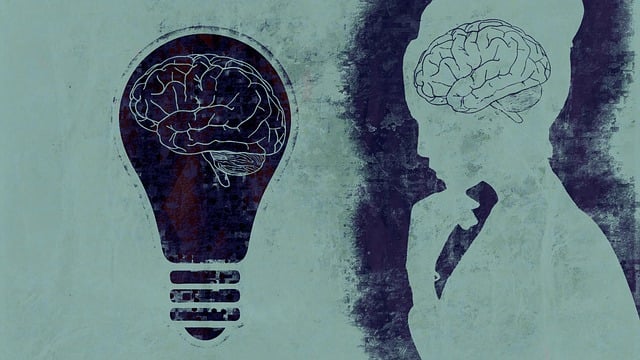Positive thinking and holistic care are powerful tools for children with cancer, fostering resilience and emotional well-being. Integrating optimism, gratitude, and self-awareness exercises into treatment plans helps kids cope with fear, anxiety, and depression, boosting their immune systems and clinical outcomes. These strategies, tailored to each child's needs, include cognitive-behavioral therapy techniques like meditation, art therapy, and positive affirmation writing. A collaborative approach involving healthcare professionals ensures age-appropriate engagement, while regular feedback adjusts the strategy for optimal recovery and long-term mental health management.
Positive thinking exercises offer a promising therapeutic approach for children facing cancer issues, significantly impacting their well-being. This article delves into the transformative power of positive thinking in mitigating the psychological effects of cancer on kids. We explore strategies for designing and implementing effective exercises tailored to young patients’ needs. By understanding cognitive and emotional resilience, healthcare professionals can integrate these practices seamlessly, providing valuable support as a therapy for children with cancer issues.
- Understanding Positive Thinking and Its Impact on Children's Well-being
- Identifying Cancer Issues and Their Psychological Effect on Kids
- The Role of Exercise in Enhancing Cognitive and Emotional Resilience
- Designing Effective Positive Thinking Exercises for Children with Cancer
- Integration and Monitoring: Strategies for Successful Implementation
Understanding Positive Thinking and Its Impact on Children's Well-being

Positive thinking is a powerful tool that can significantly enhance a child’s overall well-being and resilience. For children facing cancer or other challenging health issues, cultivating a positive mindset can be a transformative therapy. By focusing on optimism and gratitude, kids can learn to navigate their experiences with courage and hope. This approach, often integrated into holistic care plans, aims to counterbalance the fear, anxiety, and depression that are common companions in serious illnesses.
The impact of positive thinking extends beyond emotional support. Studies suggest that it can boost the immune system, aid in physical recovery, and even contribute to better clinical outcomes. Mind over matter principles, when applied through targeted exercises like self-awareness practices, can empower children to take control of their thoughts and emotions. This proactive approach to mental health is crucial not only for managing cancer-related stress but also for preventing depression later in life.
Identifying Cancer Issues and Their Psychological Effect on Kids

Children diagnosed with cancer often face a myriad of challenges that extend beyond physical treatment. The psychological impact of their diagnosis and subsequent therapy can be profound, affecting their emotional well-being and overall quality of life. This is particularly true for young patients who are still developing essential cognitive and social skills. The fear, uncertainty, and potential trauma associated with cancer treatment can lead to anxiety, depression, and even post-traumatic stress disorder (PTSD).
Early intervention and support are crucial in mitigating these psychological effects. Healthcare providers play a vital role in recognizing and addressing the emotional needs of children with cancer through tailored therapy sessions. Burnout prevention strategies for healthcare professionals are essential to ensure they can offer consistent, compassionate care. Self-awareness exercises and mental health policy analysis and advocacy can also contribute to creating a supportive environment for these young patients, fostering resilience and positive thinking as they navigate their cancer journey.
The Role of Exercise in Enhancing Cognitive and Emotional Resilience

Regular exercise plays a pivotal role in fostering cognitive and emotional resilience, especially for children facing cancer issues. Beyond its physical benefits, it serves as a powerful therapy that can significantly enhance their mental well-being. Engaging in structured activities promotes neuroplasticity, enabling the brain to adapt and strengthen neural connections. This is particularly crucial in preventing burnout among healthcare providers who support these young patients, allowing them to maintain focus and compassion throughout demanding care regimens.
Moreover, exercise facilitates self-esteem improvement by encouraging a sense of accomplishment and control over one’s body. For children navigating cancer treatment, this can be transformative, helping them overcome feelings of vulnerability and isolation. Incorporating physical activities into their routines also supports the development of a healthy self-care practice, which is essential for managing stress and promoting overall mental health—a critical aspect of burnout prevention strategies for healthcare providers caring for these resilient individuals.
Designing Effective Positive Thinking Exercises for Children with Cancer

Designing effective positive thinking exercises for children with cancer requires a thoughtful and sensitive approach. It’s crucial to create activities that are engaging, age-appropriate, and tailored to address specific mental health challenges often associated with this condition. Mental health professionals can play a pivotal role in this process by incorporating techniques that foster resilience, self-esteem improvement, and stress management workshops organization. These exercises should not only divert attention from the illness but also empower children to view their experiences positively.
When crafting these interventions, consider the child’s coping mechanisms, interests, and emotional capacity. Simple activities like guided meditation, positive affirmation writing, or even art therapy sessions can significantly enhance a child’s ability to navigate their cancer journey. Moreover, integrating elements from evidence-based practices such as cognitive-behavioral therapy (CBT) techniques ensures that these exercises are not only engaging but also effective in managing the emotional risks associated with cancer issues in children.
Integration and Monitoring: Strategies for Successful Implementation

The successful implementation of positive thinking exercises requires a strategic approach to integration and monitoring. When designing therapy programs for children facing cancer issues, it’s crucial to seamlessly weave these exercises into daily routines. This can be achieved through collaboration with healthcare professionals, educators, and caregivers who can collectively ensure the activities are age-appropriate and engaging. Regular feedback from participants and their support systems is vital for gauging the impact of these strategies. Monitoring allows for adjustments in real time, making sure that each child’s unique needs are met effectively.
Building resilience starts with fostering self-awareness exercises tailored to individual experiences. Mental health education programs designed around positive thinking can empower children to cope better with challenging situations. By integrating these practices consistently, professionals involved in the care of cancer patients can enhance overall well-being and promote a more optimistic outlook. This holistic approach not only complements medical treatment but also prepares children for long-term mental health management, contributing significantly to their recovery journey.
Implementing positive thinking exercises as part of a comprehensive therapy program for children facing cancer issues can significantly enhance their cognitive and emotional resilience. By understanding the impact of positive thinking on well-being, identifying psychological effects specific to kids with cancer, and designing tailored exercises, professionals can empower these young patients to navigate their journey with greater optimism and strength. Effective integration and monitoring strategies ensure that these practices become integral tools in supporting the holistic health of children undergoing cancer treatment.














